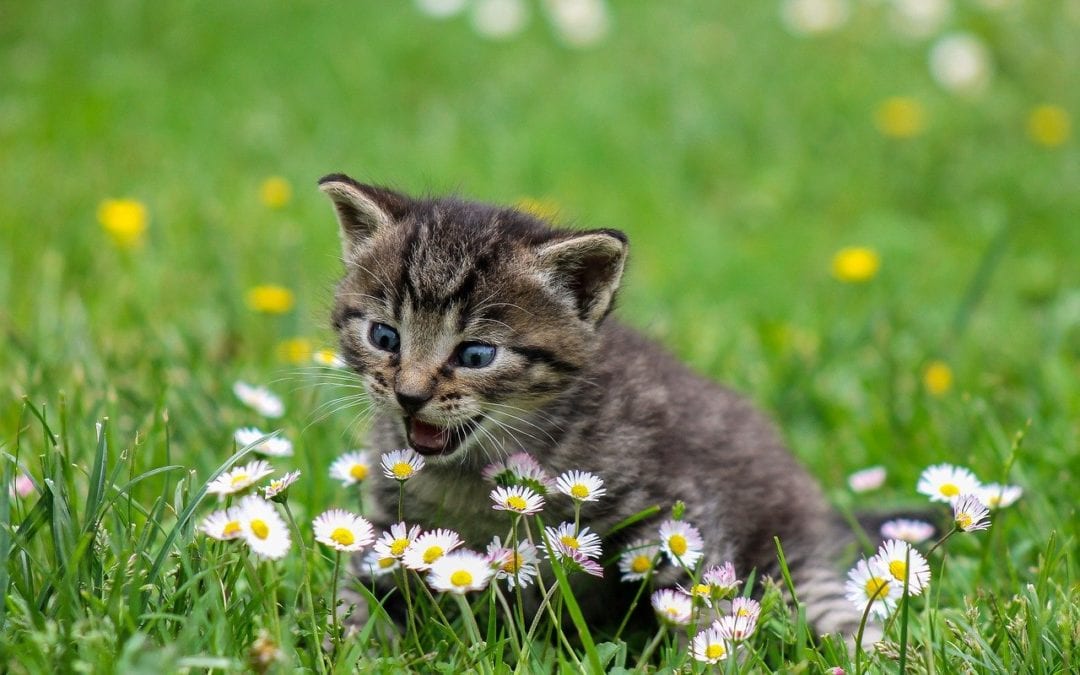Pollen season is here, and while springtime allergens are affecting you, they are also wreaking havoc on your pet’s skin. Seasonal allergies appear differently in pets than in people. Because of this, you might not be able to spot allergies in your pet. Learn these key signs that your pet may be suffering from a pollen-spurred allergy attack.
#1: Your pet has itchy, irritated, inflamed skin
Pets with allergies can be itchy and pink all over, but seasonal allergies typically cause reddened, inflamed skin that is easily noticeable through the thinner fur on your pet’s abdomen, armpits, and groin, as well as between the toes and in the ears. When your pet is outdoors lying on or walking through the grass, they’ll pick up pollen and other plant-based seasonal allergens on their paws and belly.
#2: Your pet is losing fur
As your pet licks, chews, and scratches their itchy skin, they may rip out chunks of fur. The skin is already damaged from the allergen’s attack, and your pet may be more prone to shedding in general. Along with fur loss, you may notice dandruff or a moist, greasy residue on your pet’s skin.
#3: Your pet is constantly licking at their paws
The constant slurp, slurp, slurp as you’re trying to sleep can indicate that your pet is suffering from allergies. Pets’ paws come in contact with many allergens, and your pet will lick and chew, trying to soothe their itchy, inflamed feet.
#4: Your pet has chronic ear infections
Allergies can also damage skin inside your pet’s ears, whether their ears are floppy or pointed. The moist, dark environment provides the perfect breeding ground for yeast and bacteria, and the irritated skin is not strong enough to fight off infections. Without treating the underlying allergy cause, pets will continue to have chronic ear infections.
#5: Your pet has anal gland issues
Anal gland inflammation is another common sign seen with seasonal allergies. These two small sacs typically empty their foul-smelling fluid during defecation, but they can become impacted when irritated by allergy-induced inflammation. Your pet’s scooting and licking at their hind end can indicate they need help with emptying their anal glands.
If spring and summer blooms are turning your pet into an itchy mess, let us help them get relief from seasonal allergies. Contact our team to book an appointment today!

